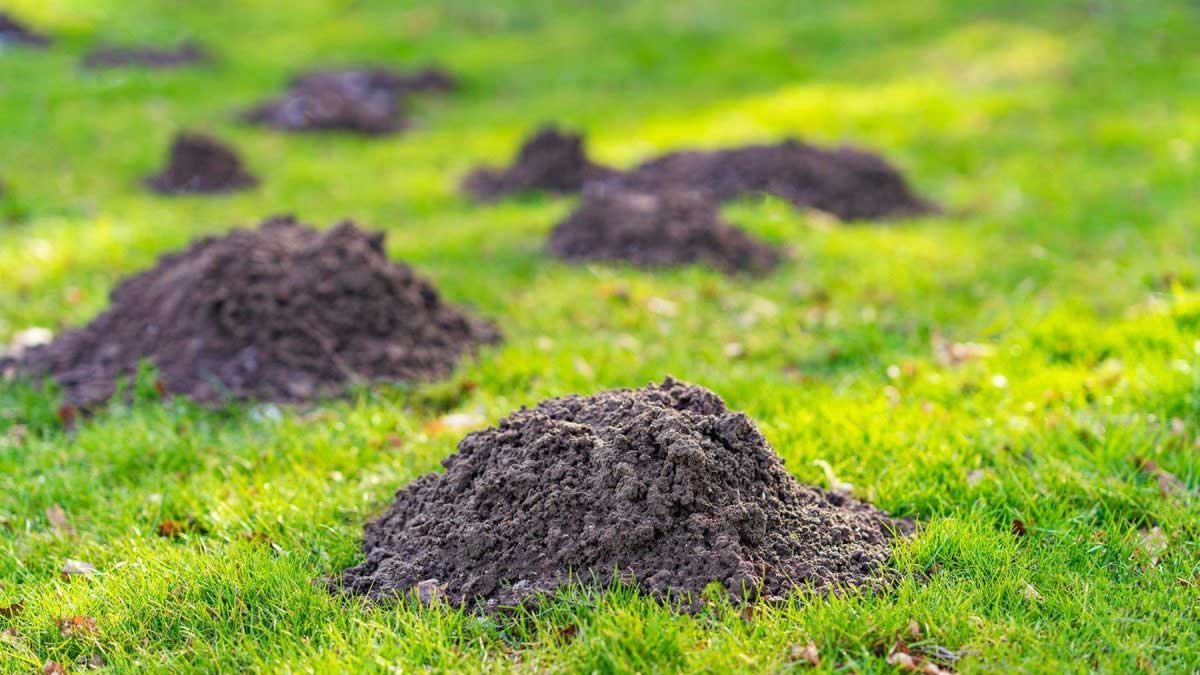Mole
Talpa europaea
Professional Mole Control in Gloucester and Cheltenham
Moles are small, earth burrowing mammals that are often considered pests by homeowners and gardeners. They can cause significant damage to lawns, gardens, and agricultural fields by creating unsightly mounds of dirt and tunnels as they burrow and search for food. Their diet consists of earthworms, insects, and grubs. Their destructive habits can lead to frustration and financial loss for property owners. Their burrows can also cause livestock and horses injury.
To address a mole problem, people usually various control methods, including traps, repellents, and landscaping changes. Trapping is a common technique, using special traps placed in active mole tunnels. However, it can be time-consuming and often requires constant vigilance to be effective. Some homeowners may also try using mole repellents or chemical deterrents, although their success rates can vary. Recently, more environmentally friendly and humane approaches, such as integrating natural predators like owls or encouraging native plants that deter moles, have become popular alternatives to traditional control methods.
Ultimately, dealing with moles as pests requires a comprehensive and long-term approach, often involving a combination of tactics. Understanding the habits and behaviors of moles can help property owners devise effective strategies for managing and minimizing their impact. While it may be challenging to eliminate moles entirely, being proactive and consistent in controlling their population and behavior can help to reduce the damage they cause.
Last updated: 24-07-2024

